- Home
- Susan Hill
The Woman in Black: A Ghost Story Page 8
The Woman in Black: A Ghost Story Read online
Page 8
“As it happened, my night was a bit disturbed in any case. I seemed to have an overdose of bad dreams and be generally restless.”
He said nothing.
“I think what I need this morning is some exercise in the fresh air. Perhaps I’ll walk into the countryside a mile or so, look at the farms belonging to some of the men who were all here doing their market business yesterday.”
What I meant was that I planned to turn my back upon the marshes and walk steadfastly in the opposite direction.
“Well, you’ll find it nice and easy walking, we’re flat as a bed-sheet for many miles about. Of course, you could go a good deal further, if you want to be on horseback.”
“Alas, I have never ridden in my life and I confess I don’t feel in the mood to start today.”
“Or else,” he said suddenly with a smile, “I can lend you a good stout bicycle.”
A bicycle! He saw my expression change. As a boy I had bicycled regularly and far, and indeed Stella and I still sometimes took the train out toward one of the locks and cycled for miles along the Thames towpath with a picnic in our baskets.
“You’ll find it around the back, in the yard there. Just help yourself, sir, if the fancy takes you.” And he left the dining room.
The idea of bicycling for an hour or so, to blow away the clinging cobwebs and staleness of the night, to refresh and restore me, was extremely cheering, and I knew that my mood was uprising. Moreover, I was not going to run away.
Instead, I decided to go and talk to Mr. Jerome. I had formed some notion of asking for help in sorting out Mrs. Drablow’s papers—perhaps he had an office boy he could spare, for I was now sure that, in daylight and with company, I was strong enough again to face Eel Marsh House. I would return to the town well before dark and work as methodically and efficiently as possible. Nor would I take any walk in the direction of the burial ground.
It was remarkable how physical well-being had improved my spirits and, as I stepped outside into the market square, I felt once again my normal, equable, cheerful self, while every so often a spurt of glee arose inside me at the anticipation of my bicycle ride.
I found the office of Horatio Jerome, Land and Estate Agent—two poky, low-ceilinged rooms, over a corn merchant’s store, in the narrow lane leading off the square—and expected also to find an assistant or clerk, to whom to give my name. But there was no one. The place was silent, the outer waiting room dingy and empty. So after hovering about for a few moments I went to the only other closed door and knocked. There was a further pause and then the scraping of a chair and some quick footsteps. Mr. Jerome opened the door.
It was clear at once that he was by no means pleased to see me. His face took on the closed-up, deadened look of the previous day and he hesitated before eventually inviting me into his office and cast odd half-glances at me, before looking quickly away again, to a point over my shoulder. I paused, waiting, I suppose, for him to inquire how I had fared at Eel Marsh House. But he said nothing at all and so I began to put my proposal to him.
“You see I had had no idea—I don’t know whether you had—of the volume of papers belonging to Mrs. Drablow. Tons of the stuff and most of it I’ve no doubt so much waste, but it will have to be gone through item by item, nevertheless. It seems clear that, unless I am to take up residence in Crythin Gifford for the foreseeable future, I shall have to have some help.”
Mr. Jerome’s expression was one of panic. He shifted his chair back, further away from me, as he sat behind his rickety desk, so that I thought that, if he could have gone through the wall into the street, he would like to have done so.
“I’m afraid I can’t offer you help, Mr. Kipps. Oh, no.”
“I wasn’t thinking that you would do anything personally,” I said in a soothing tone. “But perhaps you have a young assistant.”
“There is no one. I am quite on my own. I cannot give you any help at all.”
“Well then, help me to find someone—surely the town will yield me a young man with a modicum of intelligence, and keen to earn a few pounds, whom I may take on for the job?”
I noticed that his hands, which rested on the sides of his chair, were working, rubbing, fidgeting, gripping and ungripping in agitation.
“I’m sorry—this is a small place—young people leave—there are no openings.”
“But I am offering an opening—albeit temporary.”
“You will find no one suitable.” He was almost shouting at me.
Then I said, very calmly and quietly, “Mr. Jerome, what you mean is not that there is no one available, that no young person—or older person for that matter—could be found in the town or the neighborhood able and free to do the work if a thorough search were to be made. There would not I am sure be many applicants but certainly we should be able to find one or two possible candidates for the job. But you are backing away from speaking out the truth of the matter, which is that I should not find a soul willing to spend any time out at Eel Marsh House, for fear of the stories about that place proving true—for fear of encountering what I have already encountered.”
There was absolute silence. Mr. Jerome’s hands continued to scrabble about like the paws of some struggling creature. His pale domed forehead was beaded with perspiration. Eventually he got up, almost knocking over his chair as he did so, and went over to the narrow window to look out through the dirty pane onto the houses opposite and down into the quiet lane below. Then, with his back to me, he said at last, “Keckwick came back for you.”
“Yes. I was more grateful than I can say.”
“There’s nothing Keckwick doesn’t know about Eel Marsh House.”
“Do I take it he fetched and carried sometimes for Mrs. Drablow?”
He nodded. “She saw no one else. Not—” his voice trailed away.
“Not another living soul,” I put in evenly.
When he spoke again he sounded husky and tired. “There are stories,” he said, “tales. There’s all that nonsense.”
“I can believe it. Such a place would breed marsh monsters and creatures of the deep and Jack o’ Lanterns by the cart-load.”
“You can discount most of it.”
“Of course. But not all.”
“You saw that woman in the churchyard.”
“I saw her again. I went for a walk all around the ground Eel Marsh House stands on, after Keckwick had left me yesterday afternoon. She was in that old burial ground. What are the ruins—some church or chapel?”
“There was once a monastery on that island—long before the house was ever built. Some small community that cut itself off from the rest of the world. There are records of it in the county histories. It was abandoned, left to decay—oh, centuries ago.”
“And the burial ground?”
“There was … some later use. A few graves.”
“The Drablows?”
He turned suddenly to face me. There was a sickly grayish pallor over his skin now and I realized how seriously he was affected by our conversation and that he would probably prefer not to continue. I had to make my arrangements but I decided, at that moment, to abandon the attempt to work with Mr. Jerome and to telephone instead, directly to Mr. Bentley in London. For that purpose, I would return to the hotel.
“Well,” I said, “I’m not going to be put out by a ghost or several ghosts, Mr. Jerome. It was unpleasant and I confess that I shall be glad when I have found a companion to share my work out at the house. But it will have to be done. And I doubt if the woman in black can have any animosity toward me. I wonder who she was? Is?” I laughed though it came out sounding quite false into the room. “I hardly know how to refer to her!”
I was trying to make light of something that we both knew was gravely serious, trying to dismiss as insignificant, and perhaps even nonexistent, something that affected us both as deeply as any other experience we had undergone in our lives, for it took us to the very edge of the horizon where life and death meet together. “I must face
it out, Mr. Jerome. Such things one must face.” And even as I spoke I felt a new determination arise within me.
“So I said.” Mr. Jerome was looking at me pityingly. “So I said … once.”
But his fear was only serving to strengthen my resolve. He had been weakened and broken, by what? A woman? A few noises? Or was there more that I should discover for myself? I knew that, if I asked him, he would refuse to answer and, in any case, I was uncertain whether I wanted to be filled up with all these frightening and weird tales of the nervous Mr. Jerome’s past experiences at Eel Marsh House. I decided that, if I were to get to the truth of the business, I should have to rely upon the evidence of my own senses and nothing more. Perhaps, after all, I should do better not to have an assistant.
I took my leave of Mr. Jerome, remarking as I went that in all probability I should see nothing more of the woman or of any other peculiar visitors to the late Mrs. Drablow’s house.
“I pray that you do not,” Mr. Jerome said, and he held onto my hand with a sudden fierce grip as he shook it. “I pray that you do not.”
“Don’t worry about it,” I called, deliberately making myself sound carefree and cheerful, and I ran lightly down the staircase, leaving Mr. Jerome to his agitation.
I returned to the Gifford Arms and, instead of telephoning, wrote a letter to Mr. Bentley. In it I described the house and its hoard of papers and explained that I should have to stay longer than anticipated and that I expected to hear if Mr. Bentley required me to return at once to London, and make some other arrangements. I also made a light remark about the bad reputation Eel Marsh House enjoyed locally and said that for this reason—but also for others rather more mundane—it might be difficult for me to get any help, though I was anxious to try. The whole business, nevertheless, should be completed within the week and I would arrange for the dispatch of as many papers as seemed to be important to London.
Then, putting the letter on the table in the lobby, to be collected at noon, I went out and found the landlord’s bicycle, a good, old-fashioned sit-up-and-beg with a large basket on the front almost like that sported by the butcherboys in London. I mounted it and pedaled out of the square and away, up one of the side streets toward the open country. It was the perfect day for bicycling, cold enough to make the wind burn against my cheeks as I went, bright and clear enough for me to be able to see a long way in all directions across that flat, open landscape.
I intended to cycle to the next village, where I hoped to find another country inn and enjoy some bread and cheese and beer for lunch but, as I reached the last of the houses, I could not resist the urge that was so extraordinarily strong within me to stop and look, not westward, where I might see farms and fields and the distant roofs of a village, but east. And there they lay, those glittering, beckoning, silver marshes with the sky pale at the horizon where it reached down to the water of the estuary. A thin breeze blew off them with salt on its breath. Even from as far away as this I could hear the mysterious silence, and once again the haunting, strange beauty of it all aroused a response deep within me. I could not run away from that place, I would have to go back to it, not now, but soon, I had fallen under some sort of spell of the kind that certain places exude and it drew me, my imaginings, my longings, my curiosity, my whole spirit, toward itself.
For a long time, I looked and looked and recognized what was happening to me. My emotions had now become so volatile and so extreme, my nervous responses so near the surface, so rapid and keen, that I was living in another dimension, my heart seemed to beat faster, my step to be quicker, everything I saw was brighter, its outlines more sharply, precisely defined. And all this since yesterday. I had wondered whether I looked different in some essential way so that, when I eventually returned home, my friends and family would notice the change. I felt older and like a man who was being put to trial, half fearful, half wondering, excited, completely in thrall.
But now, managing to suspend this acute emotional state and in order to help myself retain my normal equilibrium, I would take some exercise, and so I turned the bicycle and remounted and pedaled steadily down the country road, putting my back firmly to the marshes.
Spider
I returned some four hours and thirty-odd miles later in a positive glow of well-being. I had ridden out determinedly across the countryside, seeing the very last traces of golden autumn merging into the beginnings of winter, feeling the rush of pure cold air on my face, banishing every nervous fear and morbid fancy by energetic physical activity. I had found my village inn and eaten my bread and cheese and even, afterward, made myself free of a farmer’s barn to sleep for an hour.
Coming back into Crythin Gifford I felt like a new man, proud, satisfied, and most of all eager and ready to face and to tackle the worst that Mrs. Drablow’s house and those sinister surrounding marshes might have in store for me. In short, I was defiant, defiant and cheerful, and so I spun around a corner into the square and almost smack into a large motor car which was negotiating the narrow turn in the oncoming direction. As I swerved, braked and scrambled somehow off my machine, I saw that the car belonged to my railway traveling companion, the man who had been buying up farms at yesterday’s auction, Mr. Samuel Daily. Now, he was bidding his driver slow down and leaning out of the window to ask me how I did.
“I’ve just had a good spin out into the countryside and I shall do justice to my dinner tonight,” I said cheerfully.
Mr. Daily raised his eyebrows. “And your business?”
“Mrs. Drablow’s estate? Oh, I shall soon have all that in order, though I confess there will be rather more to do than I had anticipated.”
“You have been out to the house?”
“Certainly.”
“Ah.”
For a few seconds we looked at each other, neither one apparently willing to press the subject a little further. Then, preparing to remount my bicycle once I was out of his way, I said breezily, “To tell the truth, I’m enjoying myself. I am finding the whole thing rather a challenge.”
Mr. Daily continued to regard me steadily until I was forced to shift about and glance away, feeling like nothing so much as a schoolboy caught out in blustering his way through a fabricated tale.
“Mr. Kipps,” he said, “you are whistling in the dark. Let me give you that dinner you say you’ve such an appetite for. Seven o’clock. Your landlord will direct you to my house.” Then he motioned to the driver, sat back and did not give me another glance.
Once back at the hotel, I began to make serious arrangements for the next day or so for, although there had been a grain of truth in Mr. Daily’s accusation, I was nonetheless in a firmly determined frame of mind and more than ready to go ahead with the business at Eel Marsh House. Accordingly, I asked for a hamper of provisions to be got ready and, in addition, went out myself into the town and bought some additional supplies—packets of tea and coffee and sugar, a couple of loaves of bread, a tin of biscuits, fresh pipe tobacco, matches and so forth. I also purchased a large torch lantern and a pair of wellington boots. Far at the back of my mind, I retained a vivid recollection of my walk on the marshes in the fog and rising tide. If that were ever to happen again—though I prayed fervently it would not—I determined to be as well prepared, at least for any physical eventuality, as I could be.
When I told the landlord of my plan—that I intended to spend tonight at his inn and then the next two over at Eel Marsh House—he said nothing at all but I knew full well that he was recalling at the same moment as I was myself how I had arrived, banging violently on his door in the early hours of that morning, the shock from my experiences etched upon my face. When I asked if I could again borrow the bicycle he merely nodded. I told him that I wanted to retain my room and that, depending on how speedily I got through the work on Mrs. Drablow’s papers, I should be taking my final leave toward the end of the week.
I have often wondered since what the man actually thought of me and the enterprise I was blithely undertaking, for it wa
s clear that he knew as much as anyone not only of the stories and rumors attaching to Eel Marsh House but of the truth too. I suspect that he would have preferred me to be gone altogether but was making it his business neither to voice an opinion nor to give warning or advice. And my manner that day must have indicated clearly that I would brook no opposition, heed no warning, even from within myself. I was by now almost pig-headedly bent upon following my course.
That much Mr. Samuel Daily ascertained within a few moments of my arriving at his house that evening and he watched me and let me babble, saying nothing himself for the best part of our meal.
I had found my way there without difficulty and been duly impressed upon my arrival. He lived in an imposing, rather austere country park, which reminded me of something that a character in the novels of Jane Austen might have inhabited, with a long, tree-lined carriage drive up to a porticoed front, stone lions and urns mounted upon pillars on either side of a short flight of steps, a balustraded walk, overlooking rather dull, formal lawns with close-clipped hedges. The whole effect was grand and rather chilling and somehow quite out of keeping with Mr. Daily himself. He had clearly bought the place because he had made enough money to do so and because it was the biggest house for miles around but, having bought it, he did not seem very much at ease within it and I wondered how many rooms stood empty and unused for much of the time, for apart from a few household staff only he and his wife lived here, though they had one son, he told me, married and with a child of his own.
Mrs. Daily was a quiet, shy-seeming, powdery-looking little woman, even more ill at ease in her surroundings than he. She said little, smiled nervously, crocheted something elaborate with very fine cotton.
Nonetheless, they both made me warmly welcome, the meal was an excellent one, of roast pheasant and a huge treacle tart, and I began to feel comfortably at home.
Before and during supper and over coffee, which Mrs. Daily poured out for us in the drawing room, I listened to the story of Samuel Daily’s life and rising fortunes. He was not so much boastful, as exuberantly gleeful, at his own enterprise and good luck. He listed the acres and properties he owned, the number of men in his employ or who were his tenants, told me of his plans for the future which were, so far as I could ascertain, simply to become the biggest landlord in the county. He talked about his son and his young grandson too, for both of whom he was building up this empire. He might be envied and resented, I thought, particularly by those who competed with him for the purchase of land and property. But he could surely not be disliked, he was so simple, so direct, so unashamed of his ambitions. He seemed astute and yet unsubtle, a keen bargainer, but thoroughly honest. As the evening went on I found myself taking to him more and more warmly and confiding in him too, telling him of my own albeit small-seeming ambitions, if Mr. Bentley would give me a chance, and about Stella and our prospects for the future.

 Mrs De Winter
Mrs De Winter A Question of Identity
A Question of Identity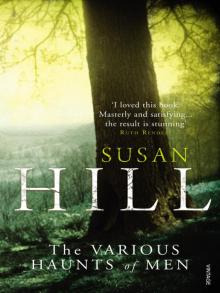 The Various Haunts of Men
The Various Haunts of Men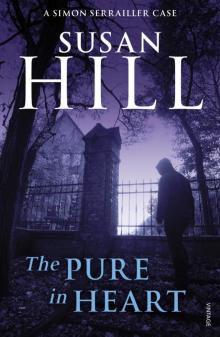 The Pure in Heart
The Pure in Heart Printer's Devil Court
Printer's Devil Court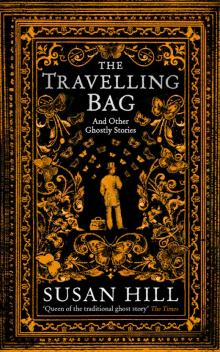 The Travelling Bag
The Travelling Bag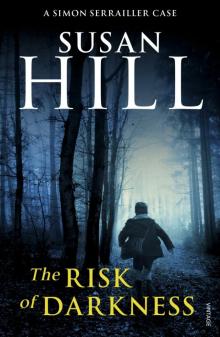 The Risk of Darkness
The Risk of Darkness A Kind Man
A Kind Man Black Sheep
Black Sheep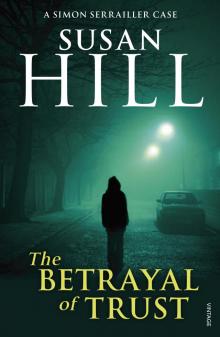 The Betrayal of Trust
The Betrayal of Trust The Service of Clouds
The Service of Clouds Betrayal of Trust
Betrayal of Trust The Small Hand
The Small Hand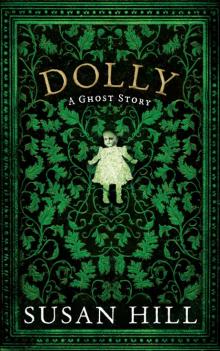 Dolly
Dolly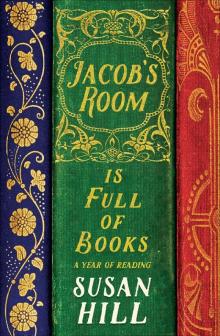 Jacob's Room Is Full of Books: A Year of Reading
Jacob's Room Is Full of Books: A Year of Reading The Vows of Silence
The Vows of Silence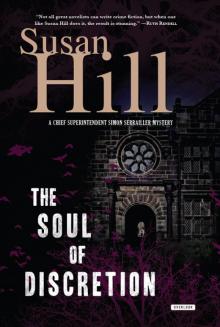 The Soul of Discretion
The Soul of Discretion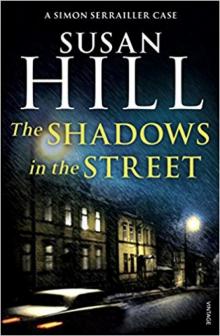 The Shadows in the Street
The Shadows in the Street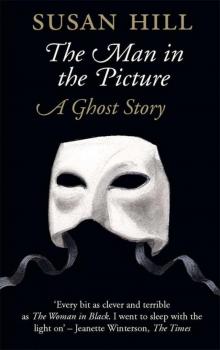 The Man in the Picture
The Man in the Picture Air and Angels
Air and Angels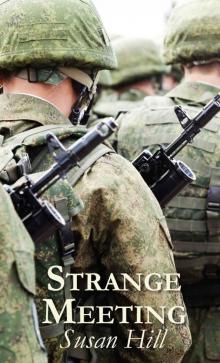 Strange Meeting
Strange Meeting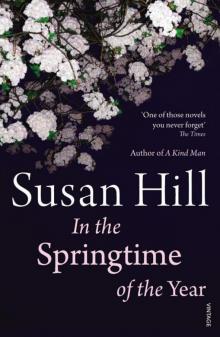 In the Springtime of the Year
In the Springtime of the Year Howards End Is on the Landing: A Year of Reading From Home
Howards End Is on the Landing: A Year of Reading From Home From the Heart
From the Heart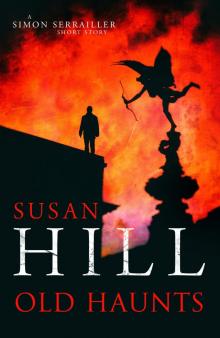 Old Haunts
Old Haunts The Mist in the Mirror
The Mist in the Mirror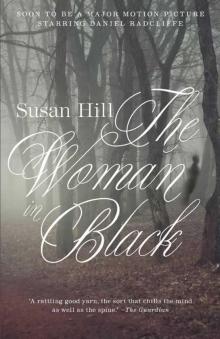 The Woman in Black: A Ghost Story
The Woman in Black: A Ghost Story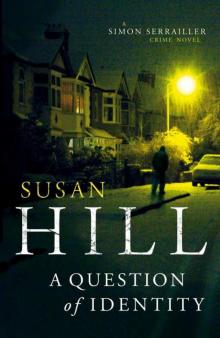 A Question of Identity (Simon Serrailler 7)
A Question of Identity (Simon Serrailler 7)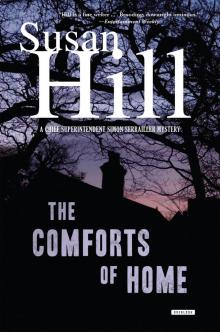 The Comforts of Home
The Comforts of Home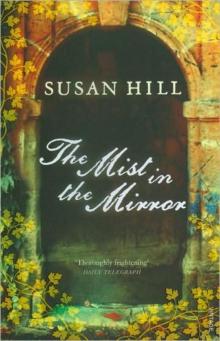 Mist in the Mirror
Mist in the Mirror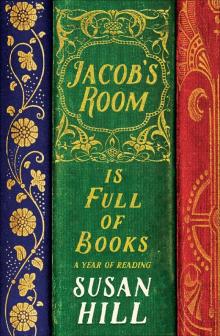 Jacob's Room is Full of Books
Jacob's Room is Full of Books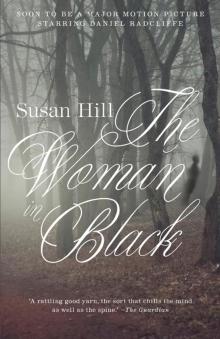 The Woman in Black
The Woman in Black Howards End is on the Landing
Howards End is on the Landing